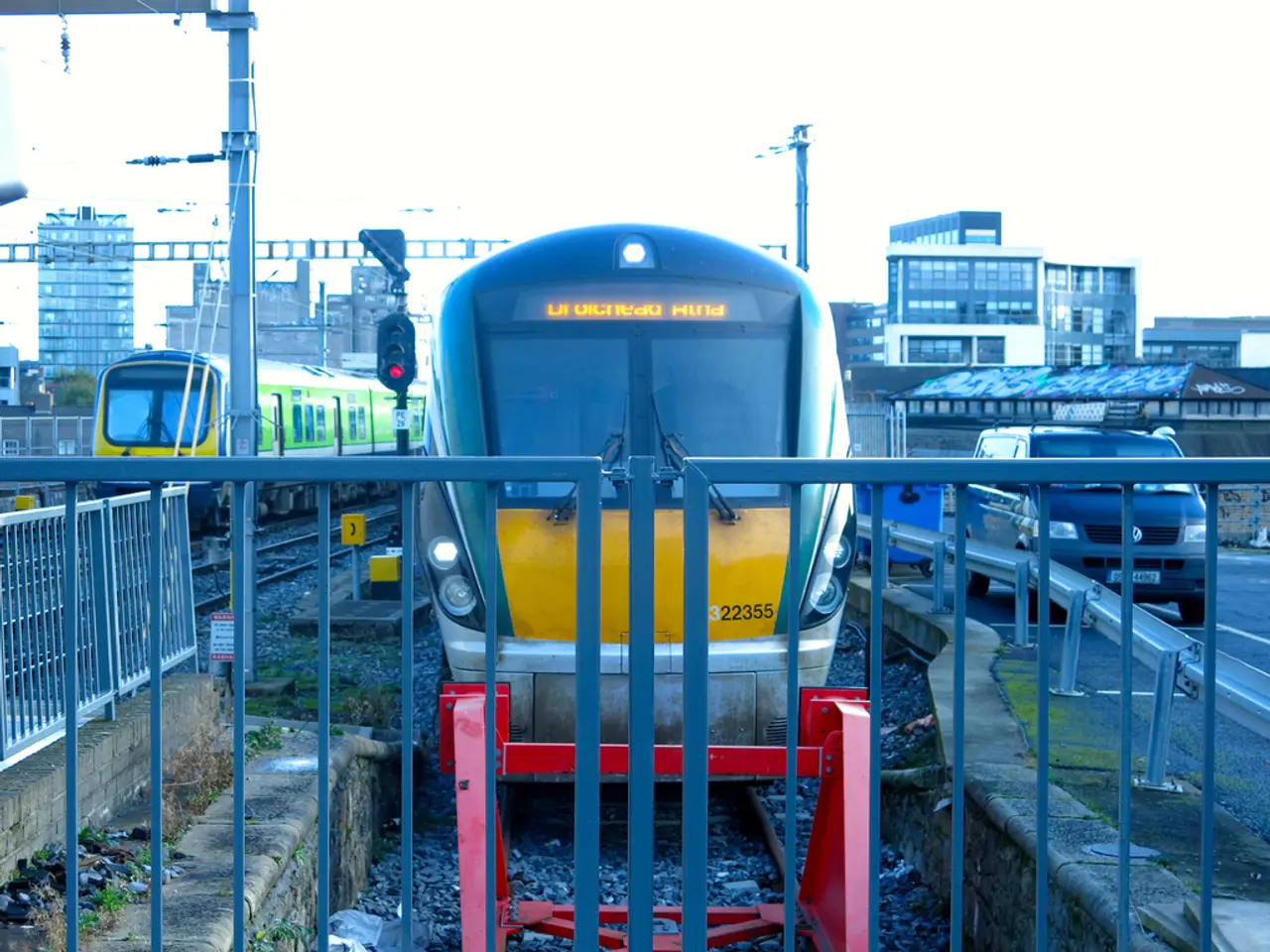Investment activist poised to garner significant profits amid Union Pacific and Norfolk Southern merger agreement
In a move that is set to redefine the landscape of North American rail transport, the merger of Union Pacific and Norfolk Southern is underway. This historic $85 billion merger agreement, which values Norfolk Southern shares at $320 each, was initiated by strategic maneuvers from activist investor Ancora Holdings.
Norfolk Southern, known for its significant exposure to intermodal transportation, has been particularly affected by a soft trucking market and persistent downward pressure on intermodal rates. The merger with Union Pacific promises to create the first U.S. coast-to-coast freight operator, offering a potential solution to these challenges.
Ancora Holdings, known for its hands-on approach in reshaping companies' trajectories, played a pivotal role in the merger. The investment firm built a substantial position in Norfolk Southern during 2023 and 2024, a period that included the East Palestine derailment and subsequent corporate challenges for Norfolk Southern. This activism helped spur the merger agreement.
While exact figures on Ancora’s potential return from the merger are not publicly detailed, the deal values Norfolk Southern shares at a 25% premium over pre-merger prices, and the combined company is valued at over $250 billion overall. Given Ancora's notable stake during challenging times, it stands to reap a hefty return from the premium merger price and the anticipated $2.75 billion in annual synergies from revenue growth and cost savings.
Ancora's investment in Norfolk Southern is part of a wider trend where activists seek to instigate corporate transformations, particularly in industries where traditional business models are under pressure. The transportation industry, which has been facing fluctuating freight volumes and rising operational costs, is no exception.
Ancora's intervention in Norfolk Southern began in early 2024 with a focus on enhancing operational efficiency and financial performance. This included changes in management, such as the removal of Norfolk Southern's CEO, Alan Shaw, following an internal investigation.
Ancora secured three seats on Norfolk Southern's board of directors, providing a platform to advocate for deeper structural changes. This close involvement has been instrumental in the merger, receiving unanimous support from Norfolk Southern's board, including the three members installed by Ancora.
Ancora Holdings is not new to engaging with underperforming transportation companies. Its portfolio includes C.H. Robinson, Forward Air, and, now, Norfolk Southern. As a key beneficiary of the Union Pacific-Norfolk Southern merger, Ancora is poised to achieve a significant return on investment, potentially realizing a return of 33% to 45%, depending on its cost basis.
The railroad industry has seen lackluster stock performance, reflecting a challenging market environment. However, the Union Pacific-Norfolk Southern merger promises to create a more robust and resilient entity, capable of navigating the complexities of the intermodal market.
In summary, Ancora Holdings influenced Norfolk Southern's governance leading up to the merger and now stands to benefit significantly from the stock premium and merger synergies once the Union Pacific acquisition closes. This move is a testament to the power of activist investing in shaping corporate strategies and driving growth in the transportation industry.
The merger between Union Pacific and Norfolk Southern, driven in part by activist investor Ancora Holdings, has the potential to create a significant return on investment for the firm, as the deal values Norfolk Southern shares at a 25% premium over pre-merger prices. Ancora's involvement in Norfolk Southern's business strategy, including changes in management, securing seats on the board of directors, and advocating for deeper structural changes, has been instrumental in the merger and may result in a return of 33% to 45%, depending on Ancora's cost basis. This instance highlights the impact of activist investing on personal-finance portfolios focused on businesses in the transportation industry, particularly in the face of fluctuating freight volumes and rising operational costs.




